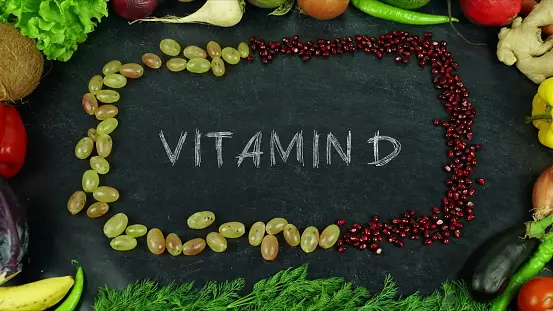Only a small number of foods naturally contain vitamin D, which is a fat-soluble vitamin that can also be added to other foods and taken as a dietary supplement. Its main purpose is to facilitate the body’s absorption of calcium, which strengthens bones and boosts immunity. In contrast to other vitamins, vitamin D is produced by our bodies in response to sunshine. Sunlight’s UVB rays cause a chemical process in the skin that makes it possible for vitamin D to be synthesised.
vitamin D encourages calcium absorption in the stomach and maintains appropriate serum calcium and phosphate concentrations. Furthermore, bone remodelling and development require it.
The body needs to go through two hydroxylation processes in order to activate vitamin D, which can be acquired from food, supplements, and sun exposure.
As calciferol, another name for vitamin D, is a fat-soluble vitamin that can be obtained as a dietary supplement or added naturally to certain foods.
There are numerous vital uses for vitamin D. Encouraging appropriate immune system function and controlling the absorption of calcium and phosphorus are two of the most important.
Sources of Vitamin D:
sunlight: The most effective method for the body to make vitamin D is still exposure to sunshine. For most people, enough levels of this vitamin can be obtained by spending merely 10 to 30 minutes in the sun, without sunscreen, a few times per week. The ability of the skin to synthesise vitamin D can be impacted by various factors, including skin colour, time of day, location, and usage of sunscreen. Food sources: Not many foods are naturally high in vitamin D, but some foods that can help with your diet include egg yolks, dairy products that have been protected, enriched grain products, and fatty fish like tuna, salmon, and mackerel. This makes adding these foods to their diet essential for maintaining sufficient vitamin D levels, especially for people with restricted sun exposure or restricted diets. supplements: When dietary consumption and sun exposure are insufficient, vitamin D pills can be a useful remedy. These supplements are available in a variety of formats, such as gummies, tablets, and capsules, making it easy for people to get the recommended daily intake of vitamin D.
Health benefits of vitamin D:
Bone health: In order to maintain strong and healthy bones, calcium absorption is a critical function of vitamin D. Low levels of vitamin D can cause diseases like bone disease in adults and rickets in children, which weaken bones and increase the risk of fractures. Immune Function: Recent studies indicate that immunological activity may be supported by vitamin D as well. Reductions in the incidence of autoimmune illnesses, respiratory infections, and other inflammatory ailments have been linked to adequate vitamin D levels. Even if additional research is required to completely comprehend the degree of vitamin D’s influence on the immune system, it is always important to maintain optimal levels for general health. Mood regulation: Mood disorders like sadness and seasonal affective disorder (SAD) may be linked to vitamin D insufficiency, according to certain research. Making sure you’re getting enough vitamin D may assist promote mental health and reduce the symptoms of these diseases, even if the exact mechanisms are still being studied.
Avoiding vitamin D deficiency:
Vitamin D lack affects a large number of people globally, The chance of a deficit might be raised by elements like age, dark skin colour, obesity, restricted sun exposure, and specific medical disorders. Look about the following methods to stop this:
Get Frequent Sun Exposure: Aim for a few times a week, 10 to 30 minutes of sun exposure on the face, arms, or legs.
Eat Foods High in Vitamin D: Include foods high in vitamin D such as dairy products with added fortification, fatty fish, and other foods in your diet.
Think About Supplements: Speak with your doctor about taking supplements if you can’t get enough vitamin D from your food and sunshine.
How much vitamin D do i need ?
Various factors, including age, sex, and health state, can influence the required daily consumption of vitamin D. The recommended dietary allowance (RDA) for the majority of adults, however, is 600 international units (IU) per day, according to the Institute of Medicine (IOM). Certain experts recommend higher dosages, particularly for people with low sun exposure or those who are more susceptible to deficiencies. Here are the general recommendations for vitamin D intake:
- Infants (0-12 months): 400 IU/day
- Children (1-18 years): 600 IU/day
- Adults (19-70 years): 600 IU/day
- Adults (over 70 years): 800 IU/day
Risks of getting to much vitamin D
You might receive too much vitamin D if you consume large doses of supplements. However, since your body controls the quantity of vitamin D produced by sun exposure, this is unlikely to occur through diet or sun exposure. A vitamin D deficiency may cause your blood calcium levels to rise. This may lead to a number of health problems, including
- apathy
- vomiting
- abdominal pain
- dehydration
- confusion
- increased thirst

